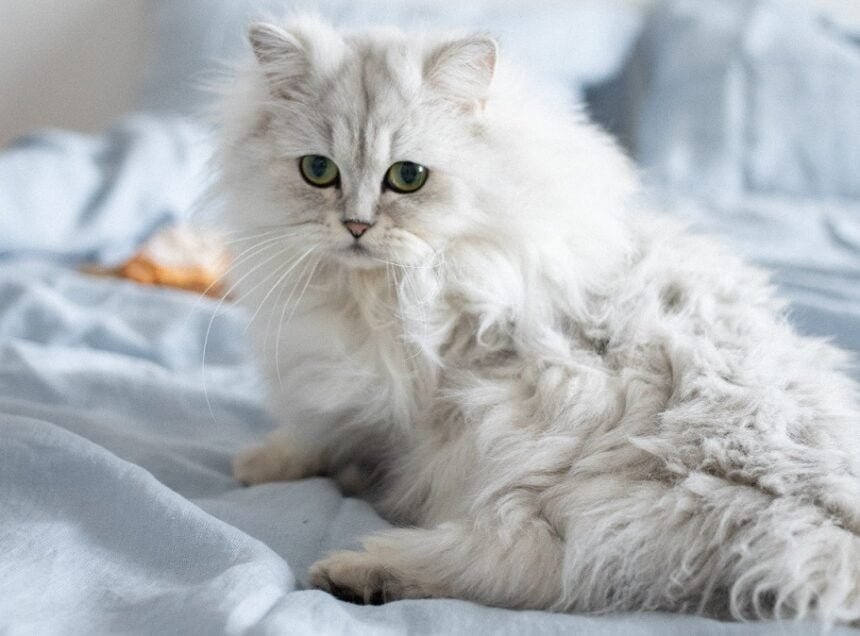Caring for your Persian kitty is essential to ensure their happiness and well-being. Regular grooming, including brushing their long coat, is crucial to prevent matting and keep their fur healthy and shiny. Paying attention to their hygiene, such as cleaning their eyes and ears, helps maintain their overall cleanliness and prevent issues like tear staining. Additionally, providing a balanced and nutritious diet, regular veterinary check-ups, a comfortable and stimulating environment, and plenty of socialization and love are key to keeping your Persian kitty happy and healthy. By incorporating these essential tips into your care routine, you can provide the best possible life for your beloved Persian kitty.
Grooming
Regular and proper grooming is crucial for maintaining the health and appearance of Persian cats. Their long, luxurious coats require extra attention to prevent matting and keep them looking their best. Grooming your Persian cat involves regular brushing, bathing, and occasional trimming.
Brushing is the most important aspect of Persian cat grooming. Use a wide-toothed comb or a specialized brush designed for long-haired cats. Start by gently combing the fur, paying close attention to areas prone to matting, such as the underarms and behind the ears. Be patient and use a gentle touch to avoid causing discomfort.
Bathing should be done periodically, typically every 4-6 weeks. Use a mild cat shampoo and warm water, and make sure to rinse thoroughly to remove any residue. Take care to avoid getting water in their ears and eyes. After the bath, gently towel dry your Persian cat and use a low heat setting on a blow dryer to complete the drying process.

Trimming your Persian cat’s hair is necessary to keep it manageable and prevent matting. Focus on trimming the hair around the anus and between the paw pads to maintain cleanliness. For longer fur, consider seeking professional help from a groomer experienced with Persian cats.
Hygiene
Proper hygiene is essential for keeping your Persian cat healthy and comfortable. Pay particular attention to their eyes, ears, and face.
Persian cats are prone to tear staining due to their prominent eyes and flat facial structure. To minimize tear staining, gently clean around their eyes with a warm, damp cloth. Avoid using harsh chemicals or products near their eyes and consult your veterinarian if tear staining persists.
Ears should be regularly inspected and cleaned. Look for signs of dirt, wax buildup, or redness. Use a veterinarian-recommended ear cleaning solution and cotton balls or pads to gently clean the outer ear. Be cautious not to insert anything deep into the ear canal to avoid injury.
Facial hygiene is crucial for Persians, as food particles can easily get trapped in their facial fur. Regularly wipe their face with a damp cloth to remove any debris or stains. Pay attention to the folds around their nose and mouth, ensuring they are clean and dry.
Diet and Nutrition:
A well-balanced and nutritious diet is essential for the overall health and well-being of your Persian cat. Consult with your veterinarian to determine the appropriate diet based on factors such as age, weight, activity level, and any specific dietary needs.
Persian cats are prone to obesity, so it’s important to monitor their calorie intake and provide portion-controlled meals. Avoid overfeeding and opt for high-quality cat food that meets their nutritional requirements. Look for food specifically formulated for Persian cats, as it may contain ingredients that support their unique needs, such as hairball control formulas.
Provide fresh water at all times and ensure that the water bowl is clean and easily accessible. Some Persian cats may prefer drinking from a water fountain, as it keeps the water circulating and fresh.
Regular Veterinary Care:
Regular veterinary care is crucial for maintaining the health and well-being of your Persian cat. Schedule annual check-ups with a veterinarian to monitor their overall health and address any concerns or potential medical issues.
During veterinary visits, your cat will receive vaccinations and preventive treatments for fleas, ticks, and worms. The veterinarian will also conduct a thorough examination to check for signs of dental problems, ear infections, or other health conditions common in Persian cats.
Additionally, be proactive in observing any changes in your cat’s behavior, appetite, litter box habits, or physical appearance. Contact your veterinarian ifyou notice anything unusual or concerning. Early detection and intervention can significantly improve the prognosis for any potential health issues.
Environmental Enrichment:
Creating a stimulating and enriching environment is important for the mental and physical well-being of your Persian cat. While they may have a reputation for being calm and sedentary, they still benefit from mental and physical stimulation.
Provide a variety of toys that encourage play and exercise. Interactive toys, such as puzzle feeders or treat-dispensing toys, can engage your Persian cat’s natural hunting instincts. Rotate the toys regularly to keep them interesting and prevent boredom.
Invest in a sturdy scratching post or cat tree to fulfill their instinctual need to scratch and climb. Persian cats enjoy perching on high platforms, so providing a tall cat tree with different levels can give them a sense of security and a place to observe their surroundings.
Make time for interactive play sessions with your Persian cat. Use toys that mimic prey, such as feather wands or laser pointers, to engage their hunting instincts. Play sessions not only provide physical exercise but also strengthen the bond between you and your cat.
Litter Box Maintenance:
Maintaining a clean litter box is essential to ensure your Persian cat’s comfort and promote good litter box habits. Persian cats are known for their cleanliness, and a dirty litter box may discourage them from using it.
Provide a litter box that is large enough for your cat to move comfortably in and has low sides for easy access. Scoop the litter box at least once a day to remove waste and clumps. Replace the litter entirely every 1-2 weeks to maintain cleanliness.
Persian cats may be more sensitive to certain types of litter, so experiment with different options to find the one your cat prefers. Avoid heavily scented litter, as it may be overpowering for their sensitive noses. If your Persian cat develops litter box aversion or starts eliminating outside the litter box, consult your veterinarian to rule out any underlying medical conditions.
Indoor Living:
Persian cats are primarily indoor cats and may not adapt well to outdoor environments. Creating a safe and secure indoor living space is important for their safety and well-being.
Ensure that windows and balconies are securely screened to prevent accidental falls or escapes. Persian cats may have a curious nature, and open windows may tempt them to explore outside. Providing a window perch with a secure ledge can satisfy their desire to observe the outdoors safely.
Consider creating a safe outdoor enclosure or “catio” where your Persian cat can experience the sights, sounds, and fresh air while remaining protected from potential dangers. A catio allows them to enjoy a bit of outdoor time while minimizing the risks associated with free-roaming.
Dental Care:
Dental care is often overlooked but essential for the overall health of your Persian cat. Teeth problems can lead to pain, infections, and other health issues if left untreated.
Brushing your Persian cat’s teeth regularly is the most effective way to maintain good dental hygiene. Use a veterinarian-approved toothbrush and toothpaste formulated for cats. Start by gradually introducing toothbrushing and make it a positive experience for your cat. Aim to brush their teeth at least two to three times a week.
In addition to toothbrushing, provide dental treats or toys that promote chewing and help reduce plaque buildup. These products can contribute to keeping your Persian cat’s teeth clean and healthy.
Socialization:
Socialization is crucial for Persian cats, as it helps them become comfortable and confident in different situations. Start socializing your Persian cat from a young age, exposing them to various people, animals, and environments.

Invite visitors to your home and encourage positive interactions with your cat. Allow them to approach at their own pace and provide treats or praise when they display calm and friendly behavior. Gradually introduce them to new experiences, such as car rides or gentle handling, to help them develop resilience and adaptability.
Interact with your Persian cat regularly through play, grooming, and gentle affection. Spending quality time together strengthens the bond between you and your cat, making them feel loved and secure.
Love and Affection:
Persian cats thrive on love, care, and affection from their owners. Provide them with a nurturing and supportive environment filled with love and positive interactions.
Make time for daily one-on-one bonding sessions with your Persian cat. Engage in activities they enjoy, such as brushing their coat, playing with their favorite toys, or simply cuddling and petting them. Regular affectionate touch and attention help build trust and strengthen the emotional bond between you and your cat.
Pay attention to their individual preferences and needs. Some Persian cats may be more independent and prefer less handling, while others may seek more physical affection. Respect their boundaries and provide affection in a way that aligns with their comfort level.
In conclusion, caring for your Persian cat requires attention to their grooming, hygiene, diet, veterinary care, environmental enrichment, litter box maintenance, dental care, socialization, and the provision of love and affection. By following these best practices, you can ensure that your Persian cat leads a happy, healthy, and fulfilling life as your beloved companion. Remember, each Persian cat is unique, so observe their behavior and consult with your veterinarian for personalized advice and guidance based on their specific needs.







